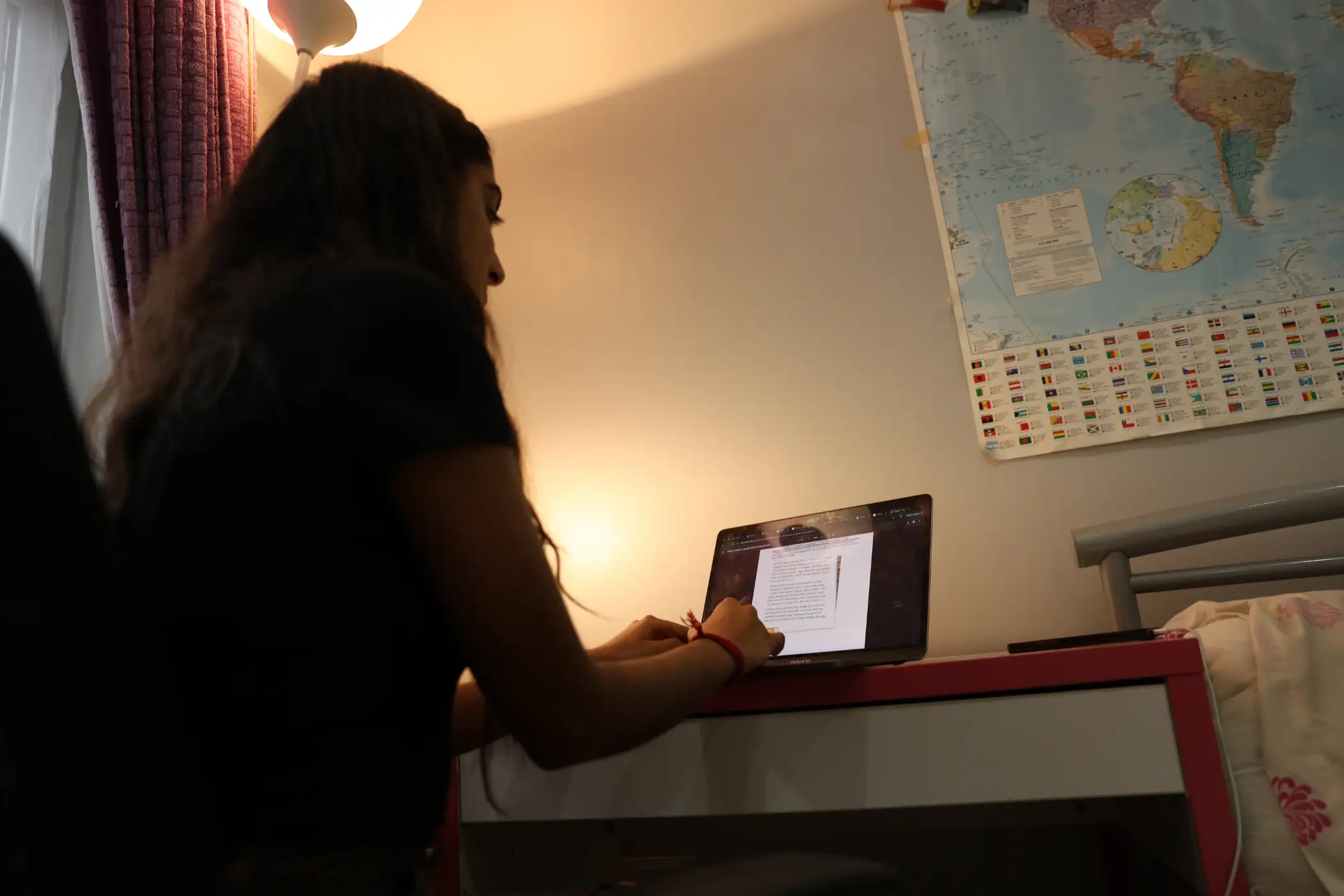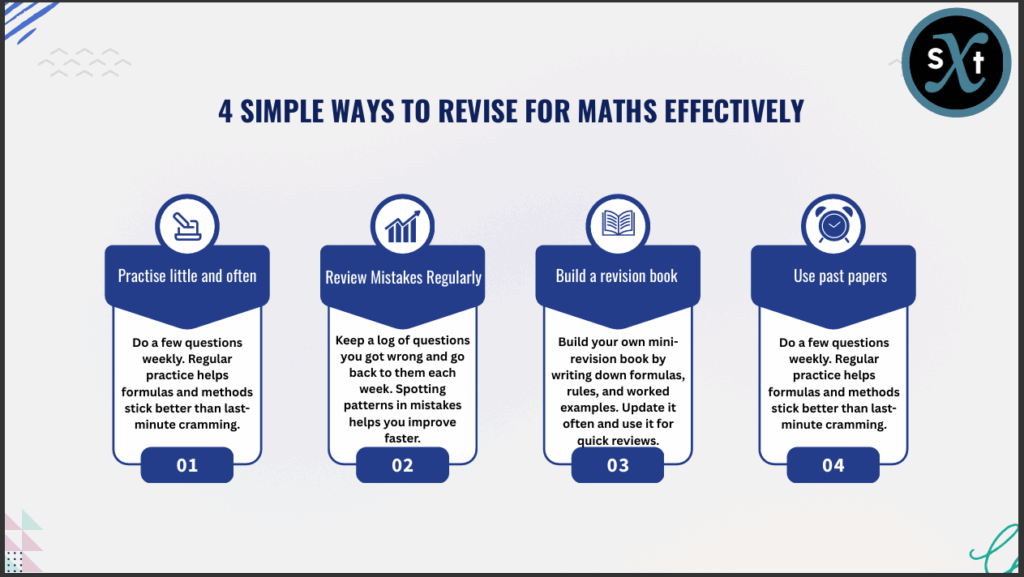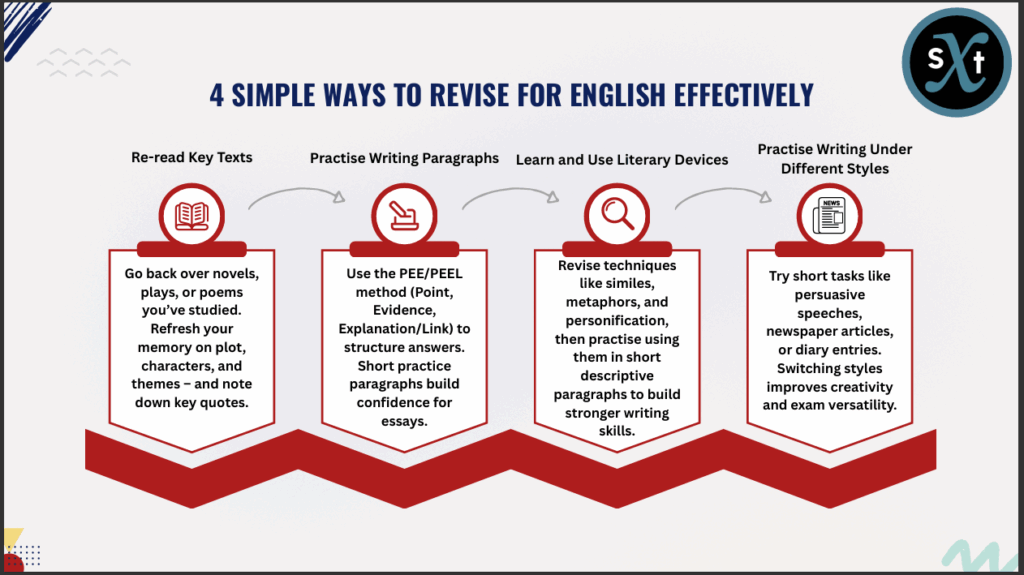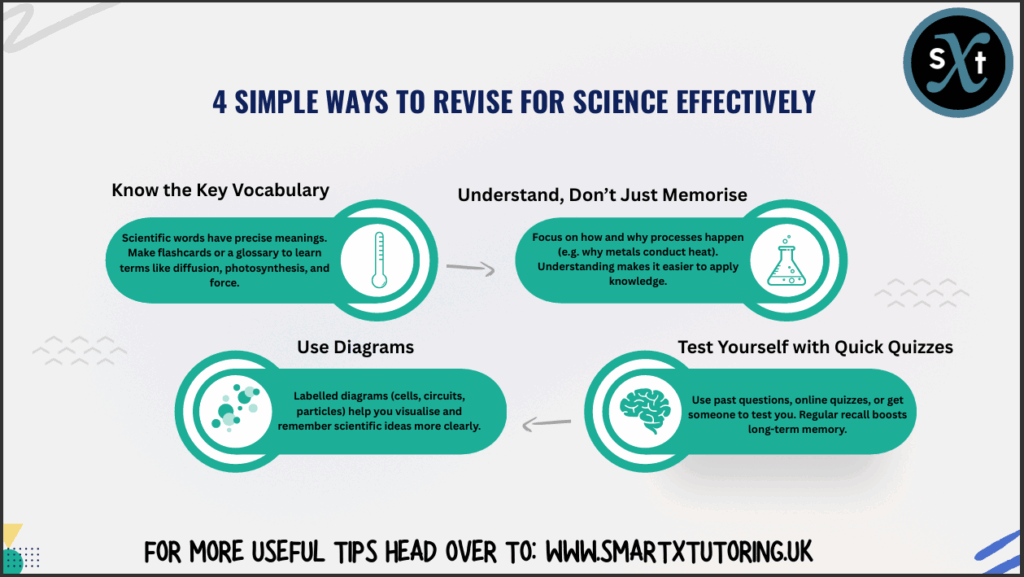
Year 7, Year 8 and Year 9 are grouped together and collectively called Key stage 3 representing the years in which students are introduced to the fundamentals and core concepts behind Maths, English and Science which later behaves as the foundations for the GCSE’s. It is important that students develop healthy learning habits in these years. At SmartX, we recommend that students spend 60 – 90 minutes a week revising each of the core subjects.
4 SIMPLE WAYS TO REVISE FOR MATHS EFFECTIVELY
1. Practise a little but often
Do a few questions weekly. Regular practice helps formulas and methods stick better than last minute cramming.
2. Review Mistakes Regularly
Keep a log of questions you got wrong and go back to them each week. Spotting patterns in mistakes helps you improve faster.
3. Build a revision book
Build your own mini revision book by writing down formulas, rules, and worked examples. Update it often and use it for quick reviews.
4. Use past papers
Do a few questions weekly. Regular practice helps formulas and methods stick better than last minute cramming.

4 SIMPLE WAYS TO REVISE FOR ENGLISH EFFECTIVELY
1. Re read key texts
Go back over all the books you have read in school and keep it fresh in your memory.
2. Practise Writing Paragraphs
Use the PEE/PEEL method (Point, Evidence, Explanation/Link) to structure answers. Short practice
paragraphs build confidence for essays.
3. Learn and Use Literary Devices
Revise techniques like similes, metaphors, and personification, then practise using them in short descriptive paragraphs to build stronger writing skills.
4. Practise Writing Under Different Styles
Try short tasks like persuasive speeches, newspaper articles, or diary entries. Switching styles improves creativity and exam versatility.

4 SIMPLE WAYS TO REVISE FOR SCIENCE EFFECTIVELY
1. Know the vocabulary
Scientific words have precise meanings. Make flashcards or a glossary to learn terms like diffusion, photosynthesis, and force.
2. Understand, Don’t Just Memorise
Focus on how and why processes happen (e.g. why metals conduct heat). Understanding makes it easier to apply knowledge.
3. Use Diagrams
Labelled diagrams (cells, circuits, particles) help you visualise and remember scientific ideas more clearly.
4. Test Yourself with Quick Quizzes
Use past questions, online quizzes, or get someone to test you. Regular recall boosts long-term memory.

Getting into good revision habits is key in KS3, if you want to give your child strong foundations and healthy study habits, you might want to consider getting a Tutor for them who can guide them through into GCSE’s.
At SmartX our tutors work as Mentors who help your child build healthy revision habits and learn study techniques. Take a look at our team at – www.smartxtutoring.uk
© 2024 SmartX Tutoring | Privacy policy | Cookies | Terms & Conditions